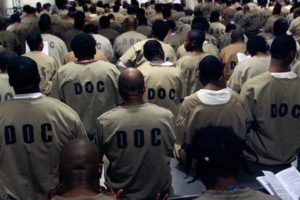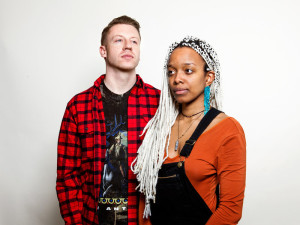White Privilege
White Privilege
November 17, 2017BuzzFeed: ‘One-third of black men will go to prison at least once in their lifetime.
The Invisible Character of White Privilege
11.17.17
by Richard Rohr
Because we have never been on the other side, we largely do not recognize the structural access we enjoy, the trust we think we deserve, the assumption that we always belong and do not have to earn our belonging. All this we take for granted as normal. Only the outsider can spot these attitudes in us.
Of course, we all belong. There is no issue of more or less in the eyes of an Infinite God. Yet the ego believes the lie that there isn’t enough to go around and that for me to succeed or win, someone else must lose. And so we’ve greedily supported systems and governments that work to our own advantage at the expense of others, most often people of color or any highly visible difference. The white man’s easy advancement was too often at the cost of others not advancing at all. A minor history course should make that rather clear.
I would have never seen my own white privilege if I had not been forced outside of my dominant white culture by travel, by working in the jail, by hearing stories from counselees, and frankly, by making a complete fool of myself in so many social settings—most of which I had the freedom to avoid! Recognition was slow in coming. I am not only white, but I am male, overeducated, clergy (from cleros, “the separated ones”), a Catholic celibate, mostly healthy, and part of the American empire.
Power never surrenders without a fight. If your entire life has been to live unquestioned in your position of power—a power that was culturally given to you, but you think you earned—there is almost no way you will give it up without major failure, suffering, humiliation, or defeat. As long as we really want to be on top and would take advantage of any privilege or short cut to get us there (what exactly is it that is up there?), we will never experience true “liberty, equality, fraternity” (revolutionary ideals that endure as mottos for France and Haiti).
To repeat, if God operates as me, God operates as thee too, and the playing field is utterly leveled forever. Like Jesus, Francis, Clare, and many other humble mystics, we then rush down instead of up. In the act of letting go and choosing to become servants, community can at last be possible. The illusory state of privilege just gets in the way of neighboring and basic human friendship.
Richard Rohr, an American Franciscan friar ordained to the priesthood in 1970. He is a known inspirational speaker and a author.
The Center for Action and Contemplation began as a dream of Fr. Richard Rohr’s in 1986 during his first year in Albuquerque. By October of 1987, the first edition of Radical Grace was published. The name was chosen because it expressed the paradoxical nature of the Center’s purpose: standing in a middle place, at the center of the cross, where opposites are held together. [wikipedia]
Contradictions of White Privilege
January 29, 2016‘This Song Is Uncomfortable’
“White Privilege II”
Ben Haggerty/Macklemore: I was in Seattle. And it starts there. It starts with that moment of observing police brutality happening, again, with no accountability — and me stepping into a protest with a lot of baggage, feeling out of protest shape, when there’s this moment of injustice and I am feeling so compelled that I need to do something, yet also stepping into that space in my own head of, “Should be here? Is there something that I’m going to get called out for, being here? Am I going to distract more than actually do any good by being present here?” And all of these questions that I had.
Jamila Woods: Yeah, I think hearing that verse was one of the most intriguing parts of the song to me. The protests I’ve attended, I’ve seen and experienced some tension between white activists, or even [just] white people attending protests, who don’t necessarily have a moment of introspection — who maybe are just taking up airtime, you know, destroying things or just doing things that are distracting from what the protest is actually for. To me, I feel like it’s an important thing not to just consider yourself an ally by showing up, but to really investigate what your role can be in a productive way. And that comes from authentically engaging with the people — the black people — who are leading the protest.

